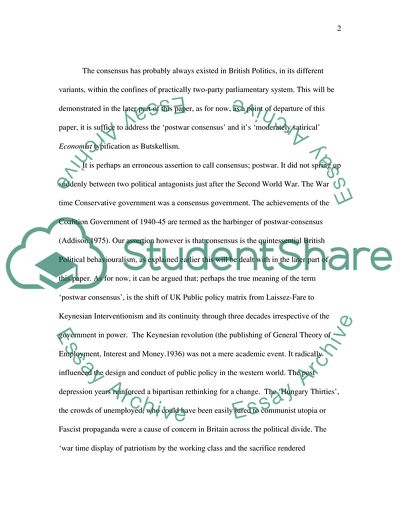Cite this document
(The Postwar Consensus in British Politics Essay Example | Topics and Well Written Essays - 1750 words, n.d.)
The Postwar Consensus in British Politics Essay Example | Topics and Well Written Essays - 1750 words. https://studentshare.org/politics/1543322-how-did-the-term-butskellism-arise-was-it-justified
The Postwar Consensus in British Politics Essay Example | Topics and Well Written Essays - 1750 words. https://studentshare.org/politics/1543322-how-did-the-term-butskellism-arise-was-it-justified
(The Postwar Consensus in British Politics Essay Example | Topics and Well Written Essays - 1750 Words)
The Postwar Consensus in British Politics Essay Example | Topics and Well Written Essays - 1750 Words. https://studentshare.org/politics/1543322-how-did-the-term-butskellism-arise-was-it-justified.
The Postwar Consensus in British Politics Essay Example | Topics and Well Written Essays - 1750 Words. https://studentshare.org/politics/1543322-how-did-the-term-butskellism-arise-was-it-justified.
“The Postwar Consensus in British Politics Essay Example | Topics and Well Written Essays - 1750 Words”. https://studentshare.org/politics/1543322-how-did-the-term-butskellism-arise-was-it-justified.


